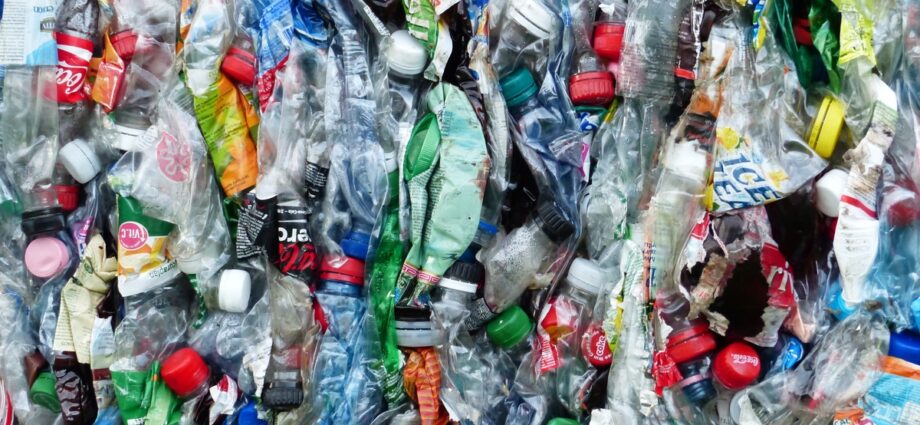
By giving concessions to countries that will never join a global plastic pollution treaty
by WWF
November 29, 2024
WWF is concerned that with just 36 hours left before the fifth and final negotiations for a global plastic pollution treaty end, countries that have professed high ambitions for the treaty have not weighed in strongly enough to prevent a weak and voluntary one from emerging.
The INC-5 chair is expected to release his version of the treaty text today, which will form the basis for what will eventually be gabled through as the final treaty this Sunday when the talks are expected to close.
Commenting on the need for the talks to show a higher level of ambition, especially from countries that have already professed strong support for global binding rules, Eirik Lindebjerg, Global Plastics Policy Lead at WWF, said:
“Everyone knows what we need to do to stop plastic pollution. It is clear that we need global binding rules across the full lifecycle of plastics, including banning the plastic products that we know are already causing serious harm to people and nature,” This political reality needs to be reflected in the final draft and the ambitious majority now have three days to secure that. By giving concessions to countries that will likely never join the treaty anyway, the ambitious countries are failing the planet. But the opposite needs to happen — the majority must unite and agree to a strong treaty among the willing.”
Yesterday morning, a broad coalition of observer organizations held a press conference outside of the talks premises. The organizations demanded that negotiators come together to show courage and not compromise in the final days of the negotiations.
The organizations, which included WWF, delivered the following statement:
“There are only 36 hours left of scheduled negotiations to secure a global treaty that can end plastic pollution. But right now, we see the usual low-ambition countries derailing the negotiations while the countries who have pledged ambition, such as members of the High Ambition Coalition (HAC) and who sit comfortably in the majority, are sleepwalking into a treaty that will not be worth the paper it will be written on. Negotiators are sticking with business as usual at such a crucial stage, abandoning their commitments, ignoring their principles, neglecting the science and economics in front of them, and failing those most impacted. All in the pursuit of consensus and finalizing any kind of treaty by the end of this week, regardless of how catastrophically futile it will be in addressing the worsening plastic crisis.
Contrary to their excuses, ambitious countries have the power and the pathways to forge a treaty to end the global plastic crisis. What we are severely lacking right now, however, is the determination of our leaders to do what is right and to fight for the treaty they promised the world two years ago.
A weak treaty based on voluntary measures will break under the weight of the plastic crisis and will lock us into an endless cycle of unnecessary harm. The clear demand from impacted communities and the overwhelming majority of citizens, scientists, and businesses for binding global rules across the entire lifecycle is irrefutable. The vast majority of governments know what now needs to be done. They know what measures we need and they know how they can be implemented. Negotiators have several procedural options available, including voting or making a treaty among the willing. In these final throes of negotiations, we need governments to show courage. They must not compromise under pressure exerted by a small group of low-ambition states and hinge the life of our planet on unachievable consensus. We demand a strong treaty that protects our health and the health of future generations.”
WWF calls on governments to secure at INC-5 a treaty that includes four essential binding global measures across the entire plastic lifecycle:
- Global bans and phase outs of the most harmful and problematic plastic products and chemicals;
- Global product design requirements to ensure all plastic we continue to produce is safe to reuse and recycle as part of a global non-toxic circular economy;
- Aligning financial flows and resources to support nations in a just transition;
- Future-proofing the treaty through mechanisms that guarantee strengthening over time.
WWF urges governments to reject any attempts at watering down or excluding core measures that must be included in the treaty. Should disputes arise or if a treaty borne out of consensus yields weak measures, governments must be willing to vote to get the treaty that we need.
According to WWF’s Global Plastic Navigator, an interactive platform tracking governments’ positions on various treaty measures:
- 146 countries have called for or supported global bans and phase-outs of problematic and avoidable plastic products and chemicals of concern;
- 147 countries have called for or supported global product design requirements and systems for the transition toward a non-toxic circular economy;
- 167 countries have called for or supported implementation support mechanisms;
- 102 countries have called for or supported evidence-based mechanisms that can strengthen the treaty over time.
Subscribe to our newsletter.
This article was originally published on IMPAKTER. Read the original article.


